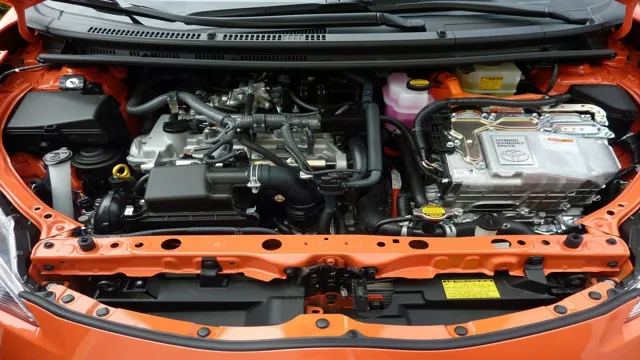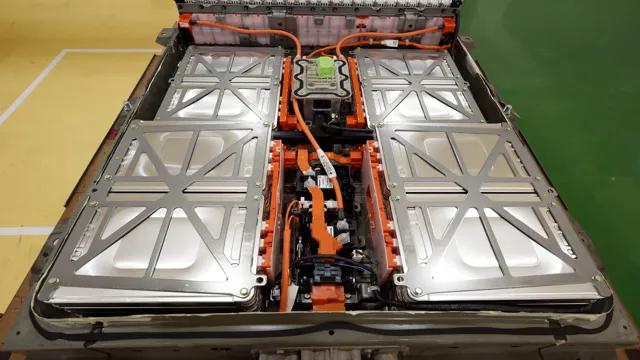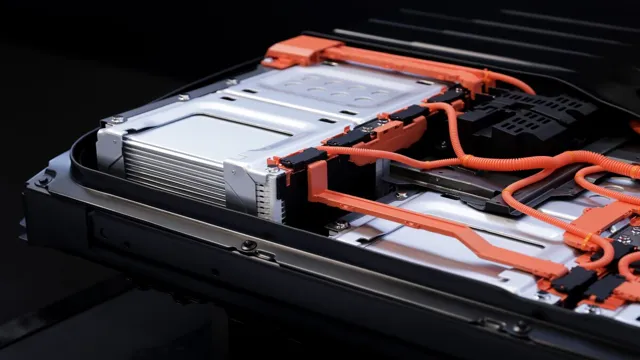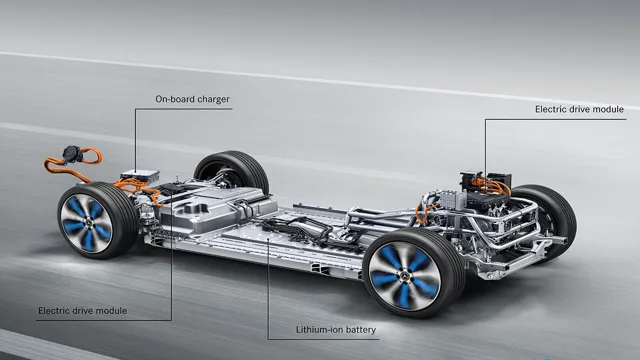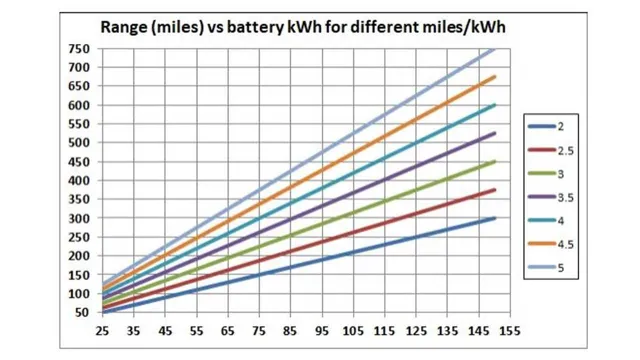Revolutionizing the Road: Get Ahead of the Game with the Best Battery Electric Cars of 2015
Electric vehicles have been around for a while, but 2015 was a major turning point for the industry. That year, electric cars started to gain widespread acceptance and recognition, and we witnessed a significant spike in their sales and production. This can be largely attributed to factors such as increased environmental awareness, technological advancements, and government incentives.
As more and more people opt for electric vehicles, it raises the question of whether this trend will continue and just how much of an impact it will have on our future. In this blog post, we’ll explore the rise of electric vehicles in 2015 and what this could mean for us going forward.
Top battery electric cars of 2015
If you’re in the market for a new car and are interested in reducing your carbon footprint, battery electric cars are a great option to consider. In 2015, there were several top models available that offered impressive performance and range. One of the most popular was the Tesla Model S, which boasted a range of over 200 miles on a single charge and a sleek, luxurious design.
Other notable options included the Nissan Leaf, which was more affordable but still managed to offer a range of 70-80 miles, and the BMW i3, which combined the efficiency of an electric car with the performance of a sports car. As electric cars continue to gain in popularity and become more mainstream, we can expect even more exciting options to come onto the market.
Tesla Model S
In 2015, the Tesla Model S was easily one of the top battery electric cars on the market. This luxury electric vehicle boasted impressive acceleration and handling, making it a joy to drive. But what really set the Model S apart were its advanced features like autopilot, a large touchscreen display, and over-the-air updates.
And of course, the Model S was known for its range, allowing drivers to travel up to 265 miles on a single charge. But with all these high-end features, the Model S came at a price – starting at around $70,000. However, for those willing to invest in luxury and cutting-edge technology, the Tesla Model S was certainly a top contender in the electric car market.
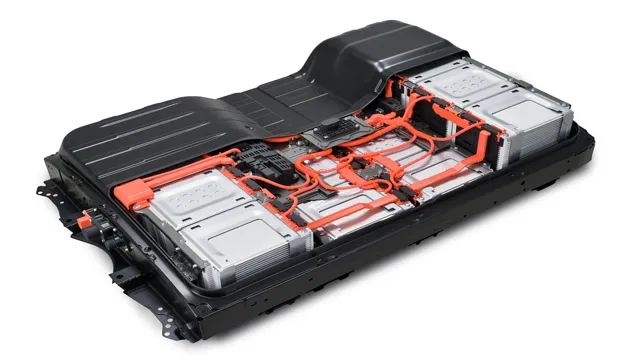
BMW i3
The BMW i3 is a top contender in the battery electric car market of 201 It packs a punch with its impressive range of 81 miles on a full charge. What sets the i3 apart is its unique design and use of sustainable materials in the interior, such as a dashboard made from responsibly sourced eucalyptus wood.
The car also features an optional gasoline range extender, which gives drivers peace of mind for longer trips. Overall, the BMW i3 provides a smooth and quiet ride with excellent handling, making it a top choice for those looking for an eco-friendly vehicle that doesn’t sacrifice style or performance.
Nissan Leaf
The Nissan Leaf is one of the top battery electric cars of 201 This eco-friendly vehicle has an impressively efficient electric motor that delivers a smooth and quiet ride. With a range of up to 107 miles, the Leaf can handle most daily commutes with ease.
The car’s interior is crafted from high-quality materials and offers ample space for passengers and cargo. The Leaf is also packed with an array of advanced features, including a 7-inch touchscreen display, a rearview camera, Bluetooth connectivity, and much more. In terms of safety, the Nissan Leaf comes equipped with a host of standard features, such as antilock brakes, stability control, and multiple airbags.
Overall, the Nissan Leaf is an excellent choice for anyone looking to go green and enjoy a fun and functional driving experience.
Advantages of owning a battery electric car
Battery electric cars have been gaining popularity in recent times, and for good reasons. Firstly, owning a battery electric car is much cheaper in the long run than traditional gas-powered vehicles. Electric cars are less reliant on fossil fuels, and therefore, are cheaper to operate and maintain.
Additionally, government incentives and tax credits can further reduce the overall cost of owning a battery electric car. Secondly, they are environmentally friendly and produce zero emissions. This not only helps reduce air pollution but also helps to combat climate change.
Thirdly, battery electric cars are extremely quiet, making for a tranquil driving experience. Lastly, battery electric cars have fewer mechanical parts than gas-powered cars, reducing the need for regular maintenance and repair. All these factors combined make battery electric cars a smart choice for the eco-conscious while providing a comfortable and quiet ride.
So, if you’re in the market for a car in 2015, consider investing in a battery electric car and enjoy a cleaner, more economical and quieter ride.
Eco-friendly
As a society, we are becoming more aware of the impact that our actions have on the environment, and the need to make changes in our everyday lives to help reduce our carbon footprint. One significant way to contribute to this cause is by owning a battery electric car. There are numerous advantages to owning an electric car, such as reducing air pollution, saving money on fuel costs, and promoting energy independence.
Plus, electric cars produce significantly fewer carbon emissions than traditional fossil fuel-powered vehicles, making them a more eco-friendly choice. Whether you’re concerned about protecting the environment or looking for an easy way to save money on gas, getting an electric car is a fantastic way to help reduce your impact on the planet. So, go ahead and make the switch to an electric car – it’s a decision that you won’t regret.
Lower operating costs
One major advantage of owning a battery electric car is the lower operating costs compared to traditional fossil fuel-powered cars. Electric cars typically have fewer moving parts and require less maintenance, resulting in lower servicing costs and fewer trips to the mechanic. Additionally, the cost of fuel is significantly lower with electric vehicles, especially when charged at home during off-peak hours.
Owners of electric cars can also take advantage of government incentives and tax credits, reducing the overall cost of ownership. While the initial cost of purchasing an electric car may be higher, the long-term savings in operating costs can make it a more financially sound investment. So, if you’re looking for a way to save on fuel and maintenance costs, an electric car may be the perfect choice for you.
Government incentives
When it comes to purchasing an electric car, the advantages are undeniable. One of the biggest benefits is the availability of government incentives. These incentives vary depending on location, but they can include tax credits, rebates, and exemption from certain fees.
For example, in the United States, buyers can receive a federal tax credit of up to $7,500 for purchasing a new battery electric vehicle. Additionally, some states offer their own incentives, such as California’s Clean Vehicle Rebate Project which offers up to $2,000 in rebates for eligible vehicles. These incentives can significantly reduce the overall cost of the vehicle and make owning an electric car much more accessible for those on a budget.
Not only is owning an electric car good for the environment, but it’s also a smart financial decision with the added bonus of government incentives.
Challenges of owning a battery electric car
Battery electric cars 2015 have been gaining popularity in recent years due to their eco-friendliness and efficiency. However, there are also some challenges that come with owning one. One of the main challenges is range anxiety, which refers to the fear of running out of charge before reaching the destination.
The limited distance that a battery can cover is a significant drawback for individuals who travel long distances regularly. Charging infrastructure is another hindrance for electric car owners since it’s not yet widespread, making it difficult to find charging stations on the go. When it comes to the battery itself, maintenance can be costly if repairs or replacements are needed.
Despite these challenges, advancements in technology and government incentives continue to make electric cars a more appealing option for eco-conscious drivers.
Range anxiety
The most common challenge faced by electric vehicle owners is range anxiety. It refers to the fear of running out of battery power before reaching the desired destination. Compared to petrol and diesel cars, electric vehicles have a limited range, which can severely limit their practicality for some drivers.
While most modern electric cars have a range between 200 to 300 miles, this may not be sufficient for long road trips or in areas where charging stations are scarce. However, advancements in technology have made it possible for electric cars to have a more extended range, and rapid charging stations help drivers to top up their vehicles quickly. Nonetheless, the fear of being stranded on the road remains a major concern for prospective electric car owners.
Therefore, it is essential to plan journeys carefully, map out charging points and have contingency plans in case of emergencies. With proper preparation and realistic expectations, range anxiety may not be a significant issue for most electric vehicle owners.
Limited charging infrastructure
One of the biggest challenges that come with owning a battery electric car is the limited charging infrastructure. While charging stations have been steadily popping up across cities and highways around the world, it still cannot compete with the sheer number of gas stations that are already in place. This can make it a daunting task to plan a long trip, especially in rural areas where charging points are few and far between.
It’s a bit like trying to navigate an unfamiliar terrain without a map – it requires a bit of foresight and planning to ensure that your car won’t run out of juice halfway through your trip. However, it’s important to keep in mind that the infrastructure is improving with each passing day, and in the long run, the benefits of owning a BEV far outweigh the initial hurdles. So, while it may be a bit of a hassle to figure out your charging strategy, it’s ultimately worth it when you consider the positive impact you’re making on the environment.
Future of battery electric cars
When it comes to the future of battery electric cars in 2015, there’s much to be excited about. With increasing concerns over climate change and the need for sustainability, electric cars have become an increasingly popular option for drivers worldwide. In fact, many experts predict that by 2030, the majority of new car sales will be electric.
Advances in technology have allowed for longer ranges, faster charging times, and more efficient batteries, making EVs a more attractive option for everyday use. Additionally, many governments and car manufacturers are investing in the development and production of electric cars, further driving innovation in the industry. So, while there are still challenges to overcome, such as battery cost and charging infrastructure, the future of battery electric cars looks bright in 2015 and beyond.
Conclusion
In 2015, battery electric cars proved that environmentally-friendly and electrically-charged can be synonymous with style and substance. With futuristic designs and impressive driving ranges, these cars showcased how clean energy can be just as powerful and exciting as traditional gas-guzzlers. From the sleek Tesla Model S to the innovative BMW i3, battery electric cars were a clear win-win for both the planet and those who love to hit the road in style.
So, let’s keep the charge going and embrace a future where electric cars are the norm, not the exception.”
FAQs
What are the top-rated battery electric cars of 2015?
According to consumer reviews and ratings, the top-rated battery electric cars of 2015 were the Tesla Model S, Nissan Leaf, BMW i3, and Volkswagen e-Golf.
How far can a 2015 battery electric car travel on a single charge?
The range for a 2015 battery electric car varies depending on the make and model, but on average, most can travel around 80-100 miles on a single charge.
How long does it take to fully charge a 2015 battery electric car?
The charging time for a 2015 battery electric car depends on the battery size and the charging station’s power output. Generally, a full charge can take anywhere from 3-12 hours.
Are battery electric cars more expensive to maintain than gas-powered cars?
Battery electric cars require less maintenance than gas-powered cars, as they have fewer moving parts and don’t require oil changes. However, battery replacement can be expensive, and the cost of electricity used for charging should be factored in.

